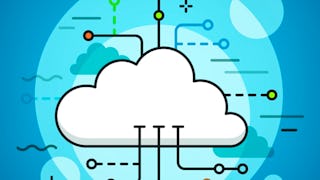This course features Coursera Coach!
A smarter way to learn with interactive, real-time conversations that help you test your knowledge, challenge assumptions, and deepen your understanding as you progress through the course. Learn how to design and build robust data pipelines using Snowflake and AWS in this comprehensive course. You will explore Snowflake's architecture, including its virtual warehouses, billing components, and object hierarchy, to fully understand how to leverage this powerful platform. In addition to that, you'll dive into key areas like data ingestion, partitioning, clustering, and performance optimization techniques, while getting hands-on experience with labs to reinforce your learning. By the end of the course, you will be able to create optimized, cost-effective data pipelines that integrate seamlessly with AWS services like S3, Lambda, and Glue. The journey includes building tasks and queries, utilizing streams for real-time data tracking, and understanding how to set up user-defined and external functions. As you progress, you will also explore advanced concepts such as Snowpark for Data Science, streaming with Kafka, and data governance techniques to ensure your data pipeline meets security and compliance standards. This course is designed for those seeking hands-on expertise in building scalable data pipelines using Snowflake and AWS. Whether you're an aspiring data engineer or an experienced professional looking to sharpen your skills, this course will provide you with the tools and knowledge to implement real-world data engineering solutions effectively.















